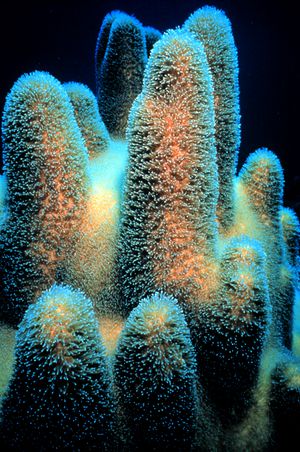Microalgal symbionts: The coral-dinoflagellate relationship
Introduction
Many microbes form symbiotic relationships with plants and animals. These relationships are complex and often persist throughout evolutionary time as organisms evolve in relation to each other. A multicellar organism that has a unique relationship to microbes are corals. Corals are marine animals in the class Anthozoa of the phylum Cnidaria. They live in warm, nutrient poor waters.
Section 1
Include some current research in each topic, with at least one figure showing data.
Section 2
Include some current research in each topic, with at least one figure showing data.
Section 3
Include some current research in each topic, with at least one figure showing data.
Conclusion
Overall paper length should be 3,000 words, with at least 3 figures.
References
Edited by (your name here), a student of Nora Sullivan in BIOL187S (Microbial Life) in The Keck Science Department of the Claremont Colleges Spring 2013.

